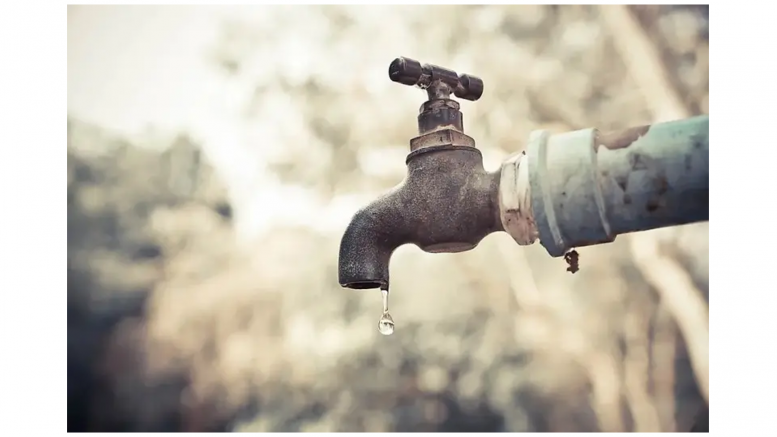Bengaluru, once known as the Garden City of India, is now grappling with a crisis that threatens its very existence: water scarcity. The rapid urbanisation and population growth in this tech hub have put immense pressure on its water resources, leading to dwindling groundwater levels, polluted lakes, and unreliable water supply. As the city faces the harsh reality of water scarcity, there are valuable lessons to be learned in sustainability that can pave the way for a more resilient future. Probably for the first time ever the rich in high rise apartments who are paying hefty EMIs are facing water woes. Not a drop to drink! There was a recent post that said that such residents are actually going to the malls to use the washroom. Such is the dire condition. Climate crisis feels so real when it hits home.
As a kid, when I lived in Chennai, I remember the acute water scarcity. There was a time when we paid up to 10rs for one ‘kodam’ of water. We thankfully had a well at our rented house and were able to get through the harshest period and we saved every drop that we could! The government swing in action and made rainwater harvesting compulsory in all buildings, even temple tanks had made changes to collect every single drop of water. I haven’t seen the city face another drought like condition after that.
Understanding the water crisis of Bengaluru
Bengaluru’s water crisis is multifaceted, rooted in a combination of factors including unchecked urbanisation, inefficient water management practices, and climate change. The city heavily relies on groundwater extraction to meet its water needs, leading to the depletion of aquifers and land subsidence. Additionally, encroachment and pollution have severely degraded the city’s lakes, once a vital source of water. Also the draining of Bellandur and Varthur lakes for desilting have hit certain areas more badly. As seen in all metro cities, this is also a problem of distribution.
Compounding these challenges is the erratic monsoon patterns attributed to climate change, resulting in unpredictable rainfall and prolonged droughts. The reliance on monsoon rains for replenishing water sources has become increasingly precarious, highlighting the urgency for sustainable water management practices.
- Rainwater Harvesting: One of the most effective strategies for mitigating water scarcity is rainwater harvesting. Bengaluru has made significant strides in promoting rainwater harvesting systems in residential and commercial buildings. By capturing rainwater and recharging groundwater aquifers, this practice can reduce reliance on external water sources and replenish depleted reserves.
- Wastewater Recycling: Embracing wastewater recycling and reuse can significantly alleviate the pressure on freshwater sources. Implementing decentralised wastewater treatment plants and utilising treated wastewater for non-potable purposes such as landscaping, industrial processes, and toilet flushing can conserve precious freshwater resources.
- Lake Rejuvenation: Restoring and rejuvenating Bengaluru’s lakes is crucial for enhancing water resilience. Efforts to clean up polluted lakes, prevent encroachment, and establish buffer zones can help restore these water bodies to their ecological function. Furthermore, integrating natural wetlands and green infrastructure into urban planning can improve water quality and recharge aquifers.
- Water Conservation Practices: Promoting water conservation practices among residents and industries is essential for sustainable water management. Simple measures such as fixing leaky pipes, installing water-efficient fixtures, and adopting water-wise landscaping techniques can significantly reduce water consumption. Public awareness campaigns and incentives can encourage behavioral changes and foster a culture of conservation.
- Integrated Water Management: Adopting an integrated approach to water management that considers the entire water cycle is critical. This includes watershed management, groundwater recharge, surface water management, and demand-side management measures. Integrated water management strategies can enhance water security, resilience, and sustainability in the face of climate variability.
- Strengthening Governance and Policy Frameworks: Effective governance and robust policy frameworks are indispensable for addressing water scarcity challenges. Bengaluru needs comprehensive water management policies that prioritise sustainability, equity, and resilience. This includes regulatory measures to prevent groundwater over-extraction, stringent enforcement of pollution control laws, and incentives for water conservation and reuse. Furthermore, fostering collaboration among government consultancies, stakeholders, and civil society organisations is essential for coordinated action and transparent decision-making processes.
- Investing in Green Infrastructure: Investing in green infrastructure can play a pivotal role in mitigating water scarcity while enhancing urban livability. Green roofs, permeable pavements, and urban forests can help reduce stormwater runoff, recharge groundwater, and mitigate the urban heat island effect. Integrating nature-based solutions into urban planning can not only improve water management but also provide multiple co-benefits such as biodiversity conservation, air quality improvement, and climate resilience.
- Promoting Community Participation and Education: Engaging communities in water management initiatives and fostering public participation is crucial for building resilience from the ground up. Community-led initiatives for lake rejuvenation, rainwater harvesting, and water conservation have shown promising results in Bengaluru. Empowering local communities through education, capacity building, and participatory decision-making processes can instill a sense of ownership and responsibility towards water resources. Additionally, incorporating water education into school curricula and raising awareness about the importance of water conservation can cultivate a culture of stewardship and sustainability among future generations.
Addressing Bengaluru’s water crisis requires a concerted effort from policymakers, urban planners, industries, communities, and individuals alike. By embracing sustainable water management practices, investing in infrastructure upgrades, and fostering community participation, Bengaluru can chart a path towards water security and resilience.
The water scarcity crisis serves as a sobering reminder of the urgent need to prioritise sustainability and resilience in our cities. Bengaluru’s journey towards sustainable water management offers valuable insights and lessons that can inspire other cities facing similar challenges to take proactive steps towards a water-secure future. As we navigate the complexities of urbanisation and climate change, let us heed the lessons from Bengaluru and work together towards building a more sustainable and resilient world.
The views and opinions published here belong to the author and do not necessarily reflect the views and opinions of the publisher.



Be the first to comment on "Water Scarcity in Bengaluru: Lessons in Sustainability"